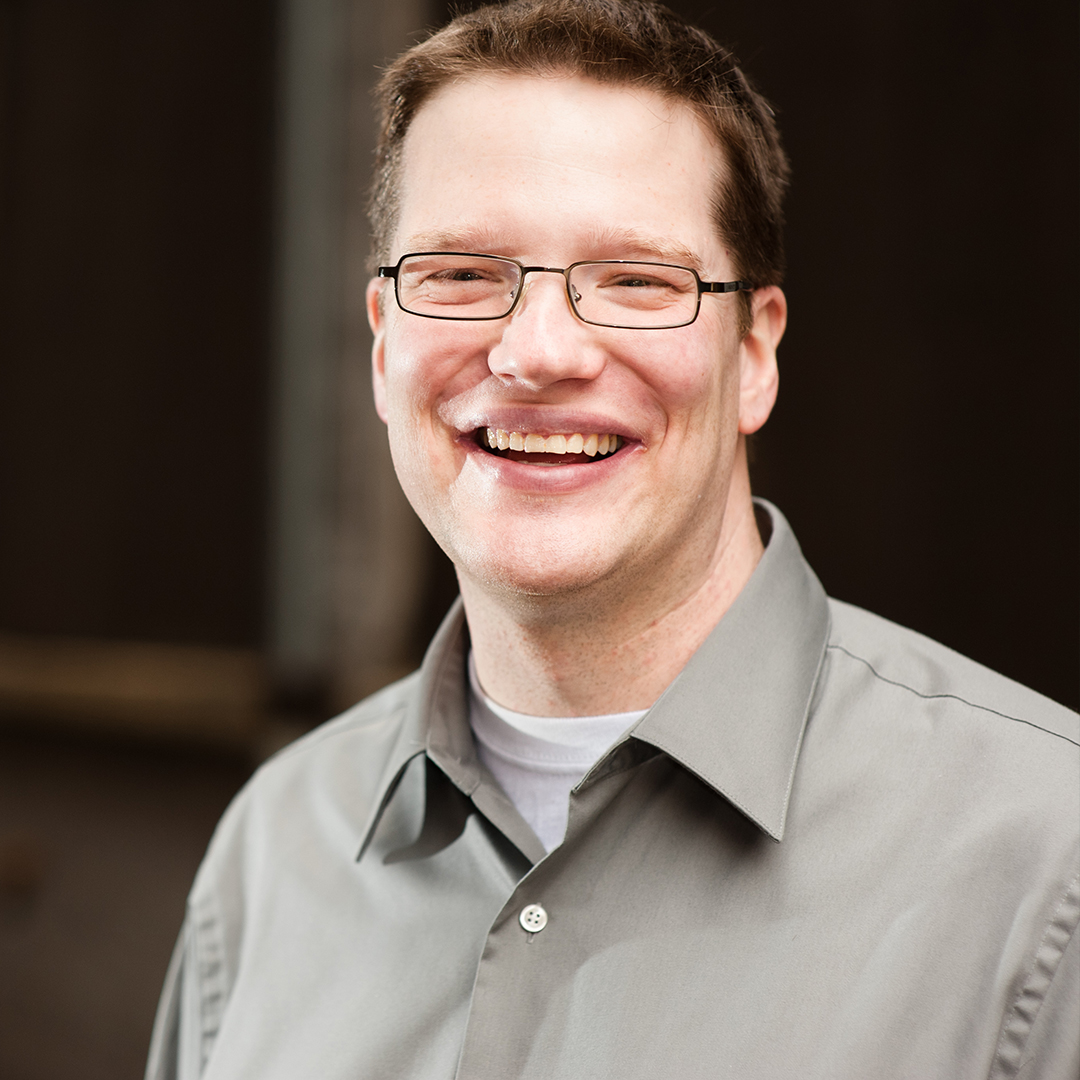The Rev. Dr. Steve Tungate, the director of the Center for Pastoral Formation, has spent years studying the book of Ephesians. He kept returning to the book — whether for Bible study or a sermon series — and found himself so fascinated that he began to use modern technology to understand the biblical city of Ephesus, which was in an area of ancient Greece that is now part of the country of Turkey.
“There are just a number of things that stood out to me,” Tungate said in a conversation with Brett Heintzman on a new episode of the “The Light + Life Podcast.” “I have never been to Ephesus, but I thought, ‘I want to see what that city looks like,’ so I actually used Google Maps Street View and started looking around at the buildings and doing some research into what buildings were, what they represented, the history behind that.”
Philosophical and Intellectual
Tungate said that he “started to see some connections that I had never seen before, the connections with Paul and the greater Greco-Roman world, and really the philosophical influence on that area of Ephesus and Paul then addressing some of those issues that were so ingrained in their culture that they drew from centuries-old Greek philosophers.”
The Apostles Paul (the book’s author) and John lived in Ephesus for parts of their lives.
“Both of them had very firsthand knowledge of the city itself. Paul lived there for two to three years, and so Paul knew this city very well,” Tungate said.
Philosophy mattered to the city of Ephesus.
“Around 500 B.C., Ephesus had their famous philosopher, Heraclitus. He predated Socrates, Plato and Aristotle, … and he was very influential.”
Although much of Heraclitus’ writing has not survived, the remaining writings reveal “some direct connection with Plato in particular. Heraclitus had influenced Plato over 100 years later after [Heraclitus’] death,” Tungate said.
Heraclitus emphasized a “unity of opposites — that although there are things that are different, there can be a unity in that,” said Tungate, who also credited Heraclitus with the “idea that there’s always this constant change going on.”
An enduring saying of Heraclitus is: “No man ever steps in the same river twice.”
The city had an agora (a public gathering space) that served as a marketplace and trading post, and a separate agora featured philosophical and political discourse.
“Centuries later, there were still people gathering to hear what the philosophers and the politicians had to say and exchange ideas and debate,” Tungate said.
That’s not the only place in the ancient city that captured Tungate’s attention.
_
“[Ephesus’ library] captures some of the values of the city of Ephesus that would have been there at the time of Paul.” – Rev. Dr. Steve Tungate
_
“Another significant landmark in Ephesus is a library. In fact, it’s a two-story, massive building. The facade still stands today,” Tungate said. “A short time after Paul’s death, this library was built, but I think it’s worth noting here even though it didn’t stand during Paul’s time. I think it captures some of the values of the city of Ephesus that would have been there at the time of Paul.”
The library housed 12,000 scrolls, Tungate said, and it shows the importance of learning and the Ephesian residents’ access to learning.
“In the front of the facade of the library, there are four statues, and each of them are named. One is named wisdom, the other intelligence, the other knowledge, and the other virtue,” Tungate said “These are some of the concepts that were important to the city of Ephesus.”
The Spiritual Realm
Paul responded to the philosophy of his time — particularly the teachings of Plato and his followers.
“These aren’t necessarily the words that Plato himself used, but later followers of Plato and the Neoplatonists used [an] idea to capture this concept from Plato of emanation and return. The idea is that there’s a spiritual realm, and this spiritual realm is pure perfection,” Tungate said. “The universe emanated out from the spiritual realm, so the physical came from the spiritual, but it emanated out so far that it became corrupted. I think we all would agree this world is corrupted. There is corruption. There are awful things that we know happening in this world, so that idea we understand.”
In “this perfect spiritual realm, this corrupted world emanates out, and we want to return to mystery and wisdom and knowledge and enlightenment. What’s fascinating is Paul picks up on that language,” said Tungate, noting that’s especially the case in Paul’s “beautiful prayers for his readers” in Ephesians 1 and 3. Paul prays “that the people would have this sense of knowledge and wisdom and enlightenment and understanding that they could know that which is beyond knowledge — this mystery. That’s the words of Plato — that the spiritual realm is mystery, and the only way to get back there is through wisdom and knowledge and understanding.”
Tungate noted that “the way Paul writes, the longing of the Greeks — the longing of the philosophers — is fulfilled in Jesus; that through Christ, we do have this knowledge. We do have wisdom. This mystery has been made known to us.”
Uniqueness and Oneness
“Another concept we see in Plato is this idea of oneness, and this is where we see that influence from Heraclitus — this idea of ‘there’s unity in opposites,’ and Plato was kind of obsessed about this idea of oneness” Tungate said.
Similarly in the book of Ephesians, “we see that language there, the idea of oneness. We see in chapter 2, where Paul talks about ‘for he himself is our peace, who has made the two groups one’ [2:14]. The two groups here that he’s talking about are the Jewish people and the Gentile people — that there’s no longer a distinction between the two, but now there is oneness,” Tungate said. “The Jewish people continue to keep their Jewishness. The Gentile people continue to keep their Gentileness. So there’s uniqueness, but yet, through Christ, there is oneness.”
Creating a Just Society
Tungate noted that “one of the things that Plato was looking for was a just society.”
Plato wanted to see “true justice and rightness” in the society in which he lived, “and he believed that there are three components to create a just society. The first is you need the right leaders in place. The second is you need the right producers producing,” said Tungate who noted the producers “would include the artists, the architects, the farmers, the craftspeople. In other words, we summarize this as basically the economy.”
The warriors are the third component. Military strength mattered to Plato, and, much like in today’s political climate, borders also mattered. Like in modern times, the thought was “if the military presence is strong, our borders are secure. We can have a just society,” Tungate said.
_
“We are citizens of heaven.” – Rev. Dr. Steve Tungate
_
“Now in the book of Ephesians, we do see Paul addressing this using the same language,” he said. “What’s fascinating is, in chapter 2, we see in verse 19, he uses the word citizenship. ‘Consequently, you are no longer foreigners and strangers, but fellow citizens with God’s people and also members of his household.’
“So Paul’s using the idea of citizenship to talk about our relationship with God. We are citizens of heaven. We’re not foreigners and strangers any longer from God. We’re fellow citizens with God’s people,” Tungate said. “So Jews and Gentiles, that’s right on the heels of that oneness between the Jewish people and the Gentile people. All of us, together in Christ, have this citizenship in heaven.”
Politics and (God’s) People
Heintzman noted that the podcast was being recorded the day after the Sept. 10 presidential debate, “and the world today is just ablaze with polarized opinions about what took place in that political debate. For us to remain centered on the kingdom of God is so very important.”
_
“The reality is we live in a corrupted world, and that corruption is going to be there.” – Rev. Dr. Steve Tungate
_
Tungate said people are looking for a just society as they were in Plato’s day, and they believe, “If my candidate gets in, then, of course, we’re going to have a just society.” They also voice the rhetoric that “if my candidate doesn’t get in, then those people are going to take over, and it’s going to cause this just society to fall apart, and it’s going to be the end of all things.”
However, “Paul reminds us to get out of that idea of looking for that just society here. The reality is we live in a corrupted world, and that corruption is going to be there,” Tungate said. “There are places of goodness, because Christ is the ultimate authority, so we don’t put our hope in our political leaders. Our hope is in Christ, and the only way true justice can come out is not based on which political party we align ourselves with.”
Instead of placing our hope on politicians, Tungate said, we can ask ourselves: “Are we truly living out the good deeds that Christ has created us for, those good deeds that have been prepared in advance for us to do as people under this grace of God? Are we living that out? And that’s the way change will come about.”
Click here to listen to the full conversation on “The Light + Life Podcast.”
+












